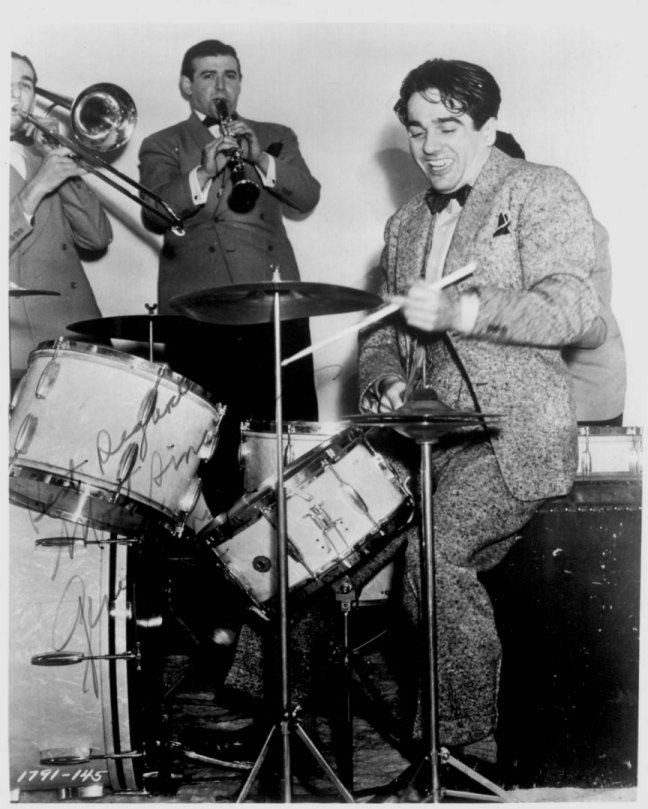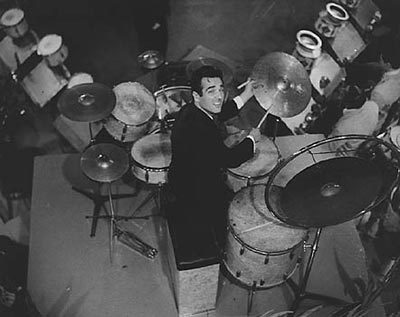Excerpts from Backbeat: Earl Palmer’s Story, by Tony Scherman—long out of print, but wonderful. Earl Palmer was a first-call session drummer in Los Angeles from the late 50s into the 80s, but got his start in New Orleans (where he began as a boy tap-dancer) making records with Fats Domino and Little Richard. He is credited with inventing the straight-eighths beat on the hi-hat or cymbal that is characteristic of rock ‘n roll, and says that he got the idea from Little Richard’s straight eighth-note pounding on the piano. He is the drummer on hundreds of hit songs from the 1960s and 1970s, but also recorded film scores, TV jingles, etc., in almost every musical genre. He could sight-read almost anything, and also did a bit of arranging and composing.
Three of us in that group were the best jazz players in New Orleans at the time: Edward Frank , Red , and me. Sam Mooney never became well known but he was a good guitar player. Ellis Marsalis used to sub for Frank and sometimes for Tyler; sometimes he’d even play Earl’s bass. We welcomed that, because Earl couldn’t play. We used to cheer every time he hit a note that was actually in the chord. The people thought we were crazy. Earl had never gone near a bass, he just didn’t want to hire a bass player.
————————
[Racism in New Orleans]: White musicians who were in town at the Roosevelt came down . It wasn’t their fault they couldn’t take you downtown; you knew they couldn’t do a damn thing about it.
I saw a white guy get thrown off a city bus once for sitting in the black section. “Can’t sit there, it’s the black section.”
“I can sit anywhere I want.”
“Not with niggers you can’t.” Threw him off the bus. One time Mike Sherpas, a white trumpet player we called Cheese, painted himself green. Got on the bus and said, “Where do you want me to sit, I’m green!” Threw him off, too.
————————
Me and Rene Hall and Plas Johnson always talked about how we could make some money and not leave the studio. One day I said, “Let’s do a rock version of ‘In the Mood.’”
“‘In the Mood’?”
Bought my house on it.
You see, back in New Orleans millions of old white guys always said, “By God, do you boys know ‘In the Mood’?” If they liked it so much, why wouldn’t their kids, if we put a rock-and-roll beat to it? Rene and Plas said, “Okay, write an arrangement,” so I did. We put it under Ernie Fields, an old bandleader wasn’t doing nothing. It was a big, big hit. It went to number 4—that’s pop, not no R&B chart. We never did another thing, but it worked once. I’m telling you, “In the Mood.”
————————
When it really dawned on me that I could do this was when I had to play cartoon music, the hardest music I ever had to play. . . . Tom and Jerry fucking cartoons. . . . That music looked like fly shit, notes all over.
————————
Rene Hall arranged everyone’s records. His stuff wasn’t my favorite but I admired one thing, the simplicity of it. “You Send Me,” that’s a perfect example of simplicity, I can’t think of any arrangement that could have been better for that tune. . . .
I remember the stop-time in the bridge made me think of tap dancing. You know, that may have been my idea. I sort of remember suggesting that.
————————
There was an engineer out there, I won’t call his name; somebody must have asked him what he thought once, and from then on he had to assert himself. Come a time he picked the wrongest thing in the world to say to the wrongest person and boy, when he said it the studio got to where you could hear a mouse piss on cotton. Because Red Callender was very, very particular about tuning his bass. Red was known to have great pitch, he was known to hit the note. So this engineer, sounding very authoritative, says to Red one day, “By the way, Red, I think you’re a little out of tune.”
Everybody say, “Oh shit.”
“Out of tune, you say?”
“Yeah, Red, a little bit.”
Red looks at the cat like he’s staring at an ant.
“And how in the fuck would you know?”
————————
Curt Wolf had the thickest German accent you could ever hear. I used to say, “Curt, man, when you going to speak English?” He’d say, “I em spicking Engglish, Airl!”
————————
During a coffee break the subject came up about Orval Faubus, the segregationist in Arkansas. This same guy’s opinion was, “Segregation is a terrible thing, but those people,” meaning us, “have to be patient. Things like that don’t change overnight.”
He turned to me and said, “Do you or don’t you agree with me?”
I said, “Man, that’s a rough question.” I kept scratching my head. He didn’t notice I was stepping on his toe, harder and harder.
“Hey, you’re hurting my toe!” he finally yells.
“Have a little patience, man. I’ll get off in a minute.”
He got my point. We became good friends.
————————
[Phil] Spector wasn’t an arranger of notes; I don’t know if he could write no notes at all. He was an arranger of ideas, of the elements that make a hit record. If there is any genius in him, that’s where it was. He had his finger on what other producers would die for: he knew what the kids wanted to hear. But you ain’t getting me to accept him as no musician.
————————
Sarah Vaughan was a chick that liked to hang. She was the Hang Out Queen, outhang anybody, drinking and getting high, day and night, talking and laughing and joking. . . . She had a mouth, too. Guys got furious at her but they took a swing at you. Anytime you was with her, you ran the risk of getting punched.
————————
The first time I met Ike [Turner] he’d just come in town. He wanted to pay everybody cash. I said I didn’t work for no cash. He starts to cuss me out and opens a briefcase with stacks of cash and a gun. That’s about what I expected. I’d heard he was a thug.
“Who the hell are you?” he says.
“I’m Palmer, and I don’t work no cash dates. I’m a union musician.”
“What I’m supposed to do, make out a contract just for you?”
You going to have to do something like that, because I don’t want no cash money. When I get fined fifteen hundred dollars by the union, are you gonna pay?” He wound up filing a contract for me alone.
————————
[Bobby Darin]: He was head above shoulders more professional than most of the little singers I was doing around then: Paul Anka, Fabian, Bobby Rydell. Wayne Newton was a long-legged short-torso kid but Darin struck me as professional right off the bat.
————————
Paul Revere & the Raiders . . . was Hal [Blaine]’s client. . . .
Teddy Reig asked me to do Manufacturers of Soul, Basie’s album with Jackie Wilson. Harold Jones, Basie’s drummer at the time, didn’t play rock, which is part of why Teddy hired me. At the session he asked me, “What can we do to make these charts a little more commercial?”
“One thing, we could try using a tambourine.”
“Who can we get to play tambourine? Larry Bunker?” That made no sense—a top-notch percussionist, just to play tambourine?
“Man, let Harold play tambourine,” I said.
“Can he?”
“All niggers play tambourine, Teddy.” Harold Jones played tambourine and got paid for it. I still have a medallion he gave me for that.
Teddy once tried to hire me to join Basie. “There was a time I would have paid to join this band,” I told him, “but I can’t afford to now.” Teddy said he understood. I said, “Man, I’m probably go home and get drunk after this.”
————————
They made a movie called Zachariah, a real hokey satire on cowboy days. Elvin Jones played a gunslinger. In his big scene, instead of saying, “Draw,” he says, “Gimme them drumsticks” and plays a big solo. . . .
Anyway, somehow or other the sound got messed up. The drum solo had to be played all over again. Jimmy [Haskell] told the producers, “Oh yeah, we can do that.”
I said, “Wait a minute. I’m not going to do this. I’m not going to fucking do this, man.”
Haskell said, “Why not?”
“Do you know who this is? I can’t match Elvin, nobody can. The man is a genius.” Finally I said, “All right. Give me two hours.” I took my lunch and a Moviola machine and some music paper, went across the alley into a little room, and transcribed Elvin’s whole solo. Took me two-and-a-half hours to write out a five-minute solo. Then I played it. I not only got paid overtime, I got a bonus when they realized how hard that was and how near it came to being perfect.
————————
NUMEROUS DATES, 1970-74 — BAKED POTATO, SWEETS EDISON. Sundary nights, always a Sunday night. Never paid much, twenty bucks, but we drank for free and got a lot of coke. Don Randi, who owned the place, asked me about getting a group in there. I said, “Why don’t you get Sweets? He’s going to bring all the pimps and hookers in. Every musician that comes in town going to come by and see Sweets.” Sure enough, the Basie band came through and they all sat in. Ellington band, same thing. Red Foxx came in to work out his nightclub routine; he’d get up there and stay an hour or more. The band was me, Sweets, Plas Johnson, Dolo Coker on piano, Larry Gales on bass. That’s some of the best jazz I played here. Sweets is a stylist, a great stylist: the minute you hear him you know him. . . .
JANUARY 18, 1973 — INAUGURATION, $1,500.00. Don Costa, Sinatra’s man, was musical director of the thing. Sinatra was emcee. . . . As it turned out, everybody brought their own band, so I wound up only playing with Roger Miller. All I had to do was walk around tasting hors d’oeuvres here and there. Since I was with Sinatra’s man, they gave me a Secret Service button that let me go in any room I wanted. All the guests are wondering, Who is he? They didn’t have many black Republicans then to speak of, so they all figure this is somebody they should know and don’t. It dawns on me: they’re worried. They don’t know who this nigger Republican is that’s big enough to be in this particular room. Who is this nigger? That’s exactly what they thinking. Who is this nigger? For him to be in here, must be somebody we supposed to know! I’m reading their minds. Who is this nigger? Must be an important nigger, an important nigger Republican AND WE DON’T KNOW HIM! Jesus, let’s don’t fuck up. Somebody find out who he is!
Nobody knew, except Mrs. Pat Boone. She saw me and came running over.
“Earl, what are you doing here?”
“Well, hi, Shirley. How’s Pat?”
“Wait, I’ll get him!” And she went and gets Pat and we’re shaking hands and hugging because I did a lot of work with him at Dot Records, and little Debbie’s hugging me and Shirley’s hugging me . . . . And the guests must have all breathed a great sigh of relief. Now we can find out who this nigger is. Everybody came swarming around Pat, who gave them the story.
“Oh! He’s an entertainment nigger! One of those kind, by God!
So now they all come up to me. “Oh, Mr. Palmer, are you having a nice time?” Mrs. Nixon, for one, very sweet lady.
“Yes, Mrs. President, I am, thank you very much.” I was feeling pretty good—I’d just smoked some weed with Pete Fountain’s band and Al Hirt.
I met them all, I’m telling you, everyone but Nixon. John Dean was the only one asked me anything about what I did.
“Who are you going to be playing with?”
“Well, I don’t know yet. That’s why Mr. Costa had me come along.”
“You mean you’d be able to play with any of them?”
“Sure, that’s what we do all the time, play with anybody we have to.”
“Must be quite an experience.” . . .
I was shocked when Sinatra exploded. They got their signals crossed and he introduced somebody, I can’t remember who, but Joey Heatherton came on. Wrong act. Sinatra hit the roof. I was in his dressing room with Costa and he storms in. “These cocksuckers don’t know what the fuck they’re doing!” I hadn’t realized until then what a rough guy this was. “Wait till my man gets in there, he’ll straighten this shit out.” I’m wondering, “What does he mean, his man? Nixon’s in.” You know what he was talking about? Agnew. He didn’t like Nixon worth a shit. That was his man, old Spiro.
————————
SEPTEMBER 25, 1973 — Midnight Special, . . . She came up the hall at NBC whe I was getting my shoes shined. I said, “Hello there.” Nothing wrong with saying hello.
She turned and said hi. Slowed down.
I said, “How are you? My, you look awful good.”
She said, “Thank you.” I got down off the shoeshine stand and talked to her. She was pretty, and very shapely. Had an Afro, not too big. One feature I liked about her, she had a little space between her teeth. That do something to you, too? She said she was there to be on some kind of talk show.
I said, “What’s your name?”
“Angela,” she said. She never mentioned Davis.
I suggested we meet for lunch. She said, “Yeah, that would be nice.” She didn’t turn a cartwheel, but she responded. I wouldn’t have imagined her to be receptive, and this is why I didn’t grasp who she was till long after.
We met at the Carriage House, . . . I told her what I did and how busy I was. She wanted to know, “Do you have any control over what you do, over your work situation?”
“Control? Yeah, I take the job or I don’t.”
“Well, you’re rather prominent as a musician. You should be doing this and this and this,” and suddenly she’s talking all kind of politics.
I said, “Wait a minute—why?”
She said, “Because there’s the exploiters and the exploited.”
I said, “Honey, nobody’s exploiting me, I’m just working.” I got a little indignant right there. She don’t know me from Adam and she’s already made a decision as to I’m being exploited and I don’t know what’s what in my job. I didn’t tell her she didn’t know what she was doing in whatever she did. What made her think because I flirted with her and hit on her that I was automatically an idiot? This had turned into something that had nothing to do with two people meeting and flirting, it was a real confrontation.
She said, “Well, I can see there’s no way of reaching you. You’re just not prepared to hear what I have to say.”
“You’re damn right,” I said, and got up and walked away.
————————
It didn’t hit me right in the face. Maybe it should have. Ain’t like I wasn’t affected—I felt it in my pocket. Producers started letting groups record their own music, instead of session men doing it. . . .
And then it finally hit me straight on, where you say, “Oh! This is why it’s happened and why it’s going to get worse.” If you remember, there was a movie called Chariots of Fire and one man, this Vangelis, did the whole score. Had electric drums, electric piano, had all this stuff. One man. And he got a Oscar. I said, “There you go. There’s the end of it right there.”




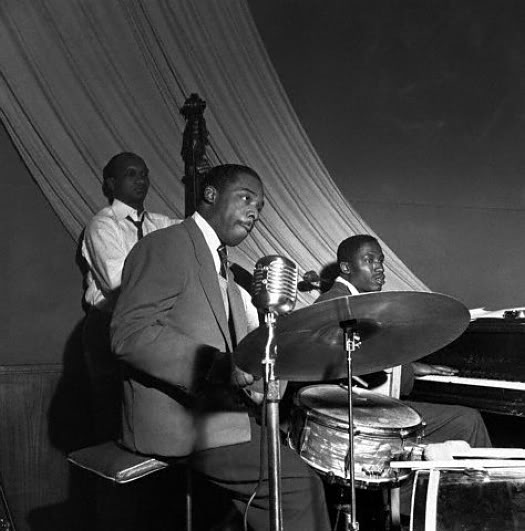
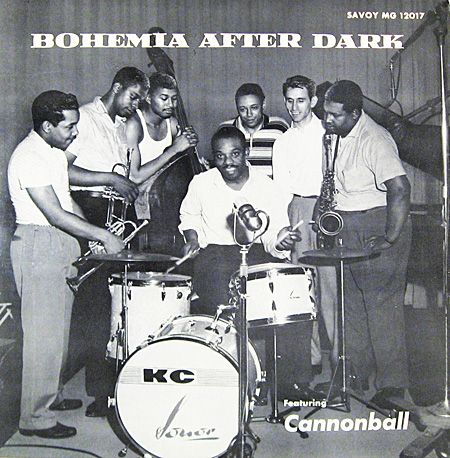
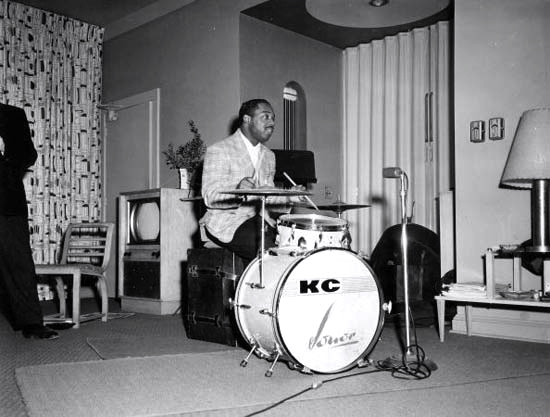
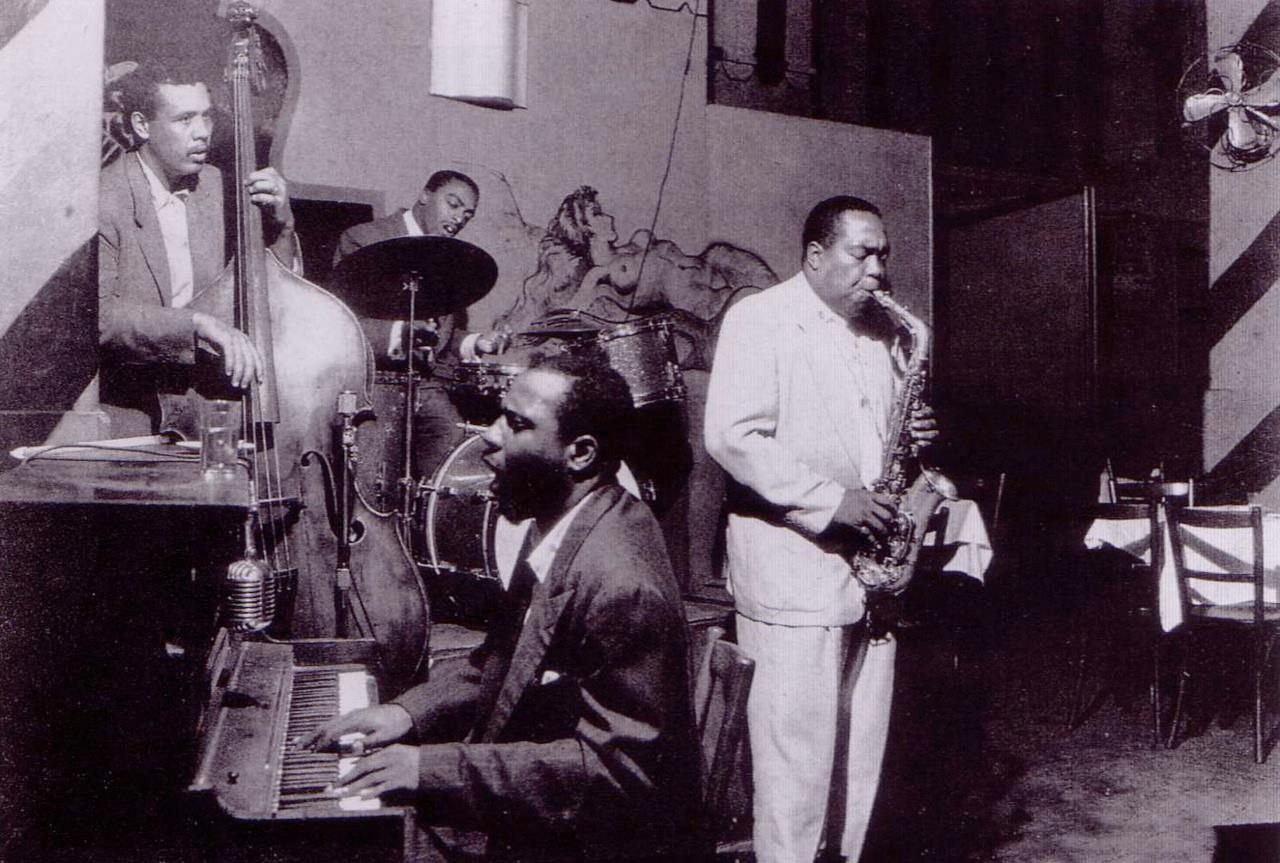
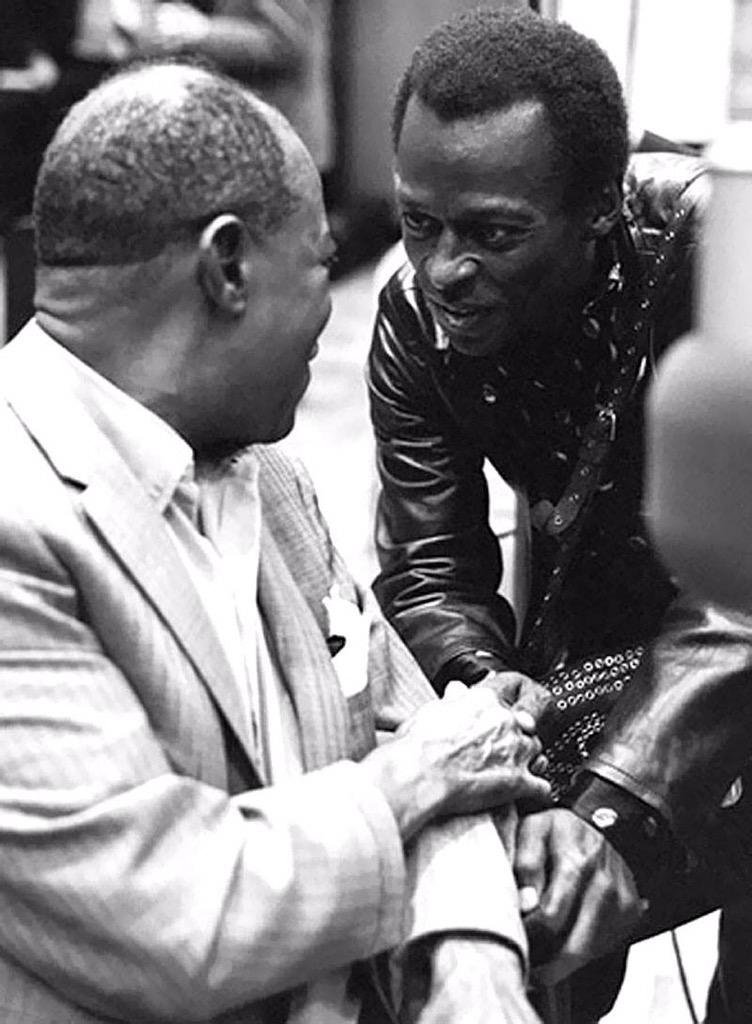
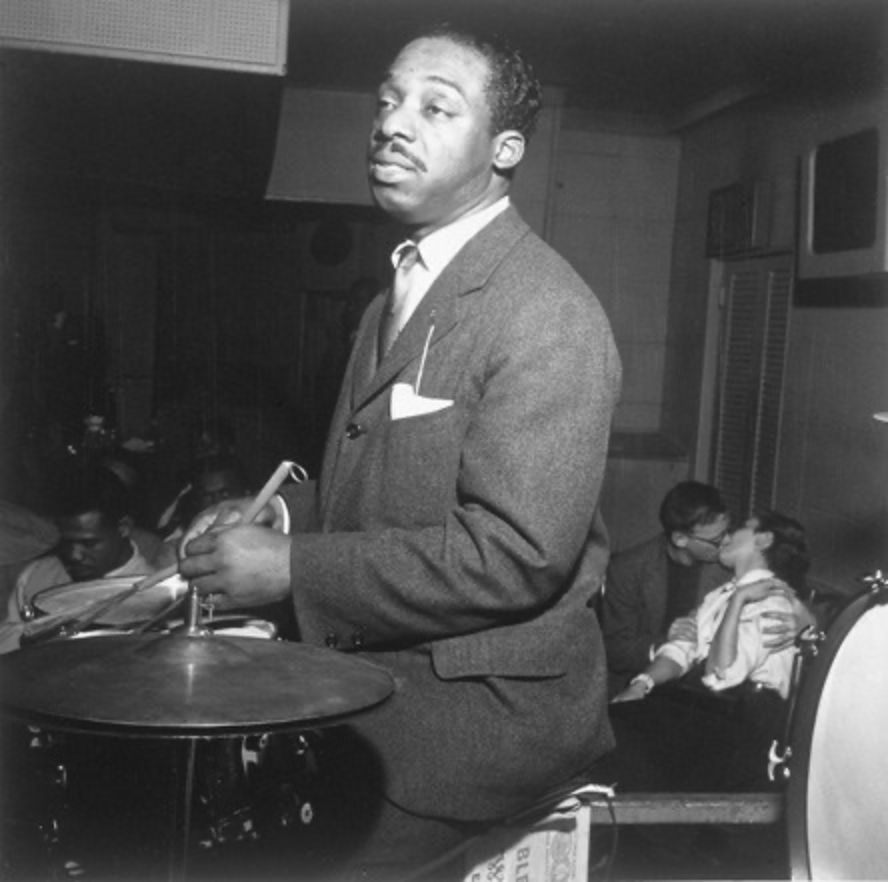
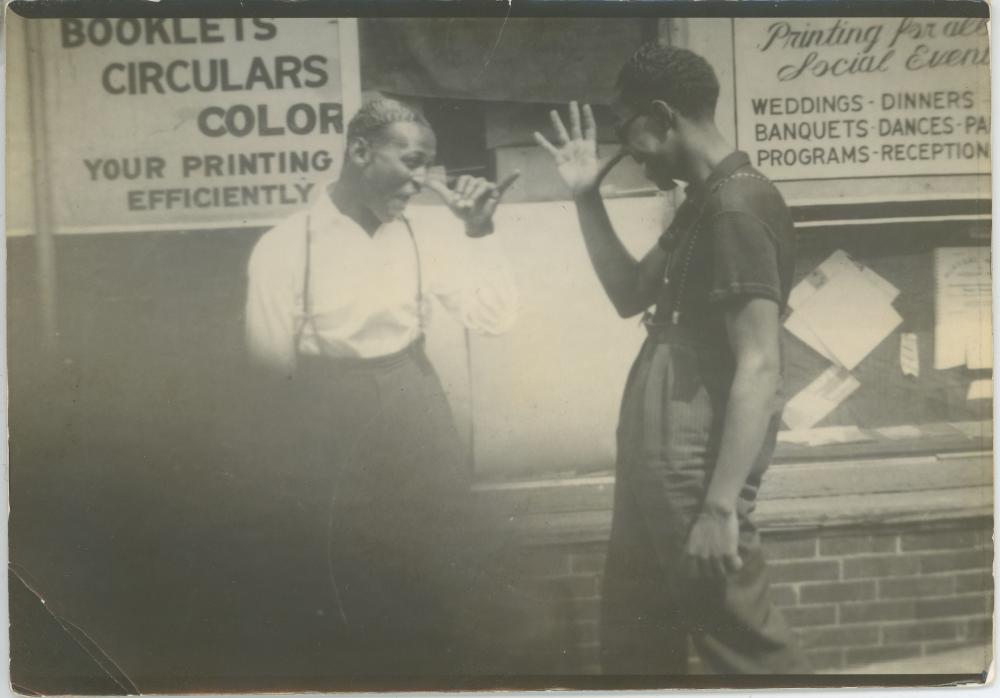
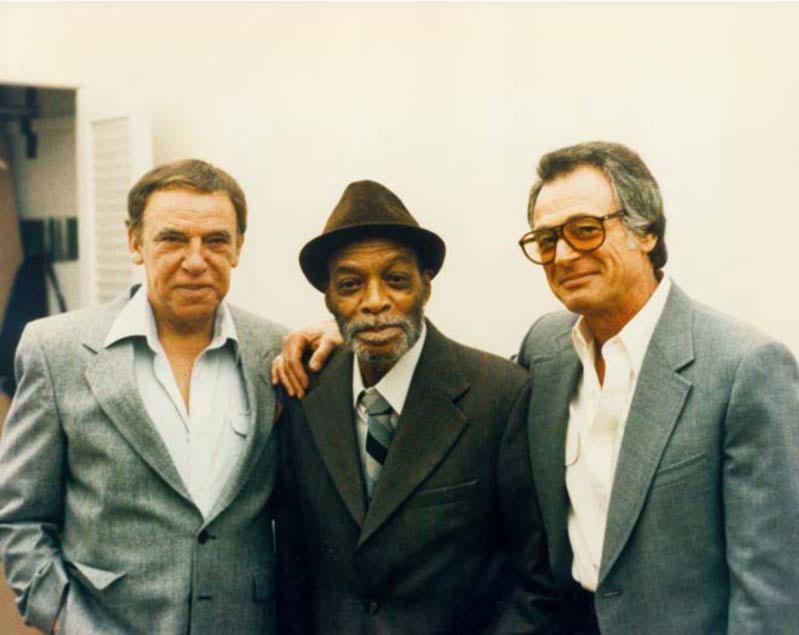

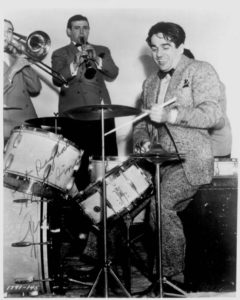 The author has found it very helpful to try do as many things with the left hand as is usually done with the right. Opening doors (the ones with the door-knobs being an ideal hand turning exercise), lacing your shoes, carrying parcels, tieing your necktie, buttoning your shirt, feeding yourself at the table, and writing, have been found to be excellent exercises for the left hand.
The author has found it very helpful to try do as many things with the left hand as is usually done with the right. Opening doors (the ones with the door-knobs being an ideal hand turning exercise), lacing your shoes, carrying parcels, tieing your necktie, buttoning your shirt, feeding yourself at the table, and writing, have been found to be excellent exercises for the left hand.

